Filter by

Fables and futures :biotechnology, disability, and the stories we tell ourselves
How new biomedical technologies--from prenatal testing to gene-editing techniques--require us to imagine who counts as human and what it means to belong. From next-generation prenatal tests, to virtual children, to the genome-editing tool CRISPR-Cas9, new biotechnologies grant us unprecedented power to predict and shape future people.OCLC-licensed vendor bibliographic record.
- Edition
- -
- ISBN/ISSN
- 9780262351799
- Collation
- 1 online resource (240 pages).
- Series Title
- -
- Call Number
- -
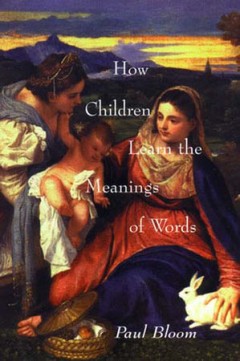
How children learn the meanings of words
How do children learn that the word "dog" refers not to all four-legged animals, and not just to Ralph, but to all members of a particular species? How do they learn the meanings of verbs like "think," adjectives like "good," and words for abstract entities such as "mortgage" and "story"? The acquisition of word meaning is one of the fundamental issues in the study of mind. According to Paul…
- Edition
- -
- ISBN/ISSN
- 9780262268783
- Collation
- 1 online resource (xii, 300 pages) : illustrations.
- Series Title
- Learning, Development, And Conceptual Change
- Call Number
- 400 BLO h
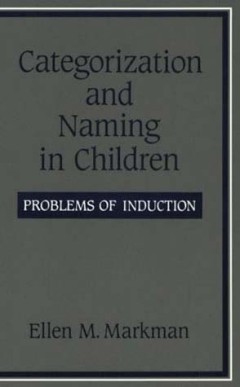
Categorization and Naming in Children: Problems of Induction
"A Bradford book."OCLC-licensed vendor bibliographic record. In this landmark work on early conceptual and lexical development, Ellen Markman explores the fascinating problem of how young children succeed at the task of inducing concepts. Backed by extensive experimental results, she challenges the fundamental assumptions of traditional theories of language acquisition and proposes that a set o…
- Edition
- -
- ISBN/ISSN
- 9780262279147
- Collation
- 1 online resource (250 pages) :illustrations.
- Series Title
- -
- Call Number
- -
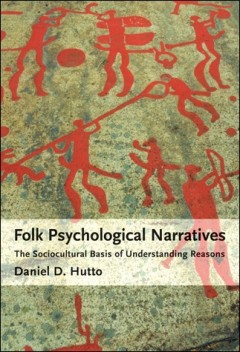
Folk psychological narratives The Sociocultural Basis of Understanding Reasons
An argument that challenges the dominant "theory theory" and simulation theory approaches to folk psychology by claiming that our everyday understanding of intentional actions done for reasons is acquired by exposure to and engaging in specific kinds of n.
- Edition
- -
- ISBN/ISSN
- -
- Collation
- 1 online resource (xvii, 402 pages)
- Series Title
- -
- Call Number
- -
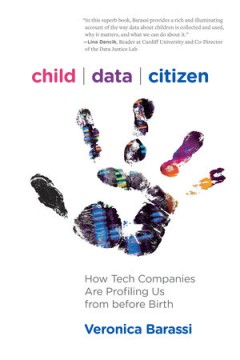
Child data citizen :how tech companies are profiling us from before birth
"Explores the collection of children's biometric, educational, and social media data and its immediate and downstream effects for individuals and families"--OCLC-licensed vendor bibliographic record.
- Edition
- -
- ISBN/ISSN
- 0262363674
- Collation
- 1 online resource.
- Series Title
- -
- Call Number
- -

Children and pensions
An analysis of the effect of public pension schemes on a country's fertility rate and a proposal for policies to reform pension coverage in light of this.The rapidly aging populations of many developed countries--most notably Japan and member countries of the European Union--present obvious problems for the public pension plans of these countries. Not only will there be disproportionately fewer…
- Edition
- -
- ISBN/ISSN
- -
- Collation
- 1 online resource (xxiii, 204 pages) : illustrations.
- Series Title
- -
- Call Number
- -

Children without a state: A global human rights challenge
Children are among the most vulnerable citizens of the world, with a special need for the protections, rights, and services offered by states. And yet children are particularly at risk from statelessness. Thirty-six percent of all births in the world are not registered, leaving more than forty-eight million children under the age of five with no legal identity and no formal claim on any state. …
- Edition
- -
- ISBN/ISSN
- 9780262295437
- Collation
- 1 online resource (xvi, 376 pages) :illustrations, map
- Series Title
- -
- Call Number
- -
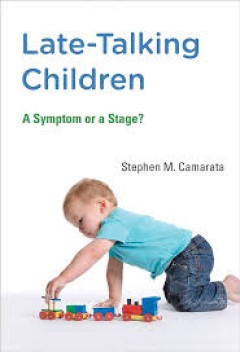
Late-Talking Children: A Symptom or a Stage
When children are late in hitting developmental milestones, parents worry. And no delay causes more parental anxiety than late talking, which is associated in many parents' minds with such serious conditions as autism and severe intellectual disability. In fact, as children's speech expert Stephen Camarata points out in this enlightening book, children are late in beginning to talk for a wide v…
- Edition
- -
- ISBN/ISSN
- 9780262319331
- Collation
- 1 online resource (xv, 233 pages)
- Series Title
- -
- Call Number
- -
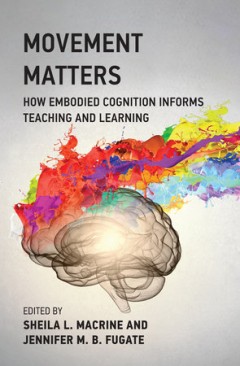
Movement Matters: How Embodied Cognition Informs Teaching and Learning
"Presents the latest research on embodied cognition's applications for educational practices, and offers perspectives on how the relationships among mind, brain, body, and environments impact learning"--
- Edition
- -
- ISBN/ISSN
- 9780262368995
- Collation
- -
- Series Title
- -
- Call Number
- -
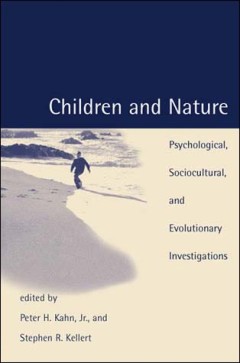
Children and Nature: Psychological, Sociocultural, and Evolutionary Investiga…
For much of human evolution, the natural world was one of the most important contexts of children's maturation. Indeed, the experience of nature was, and still may be, a critical component of human physical, emotional, intellectual, and even moral development. Yet scientific knowledge of the significance of nature during the different stages of childhood is sparse. This book provides scientific…
- Edition
- -
- ISBN/ISSN
- 9780262276641
- Collation
- 1 online resource (xix, 348 pages) :illustrations
- Series Title
- -
- Call Number
- -
 Computer Science, Information & General Works
Computer Science, Information & General Works  Philosophy & Psychology
Philosophy & Psychology  Religion
Religion  Social Sciences
Social Sciences  Language
Language  Pure Science
Pure Science  Applied Sciences
Applied Sciences  Art & Recreation
Art & Recreation  Literature
Literature  History & Geography
History & Geography